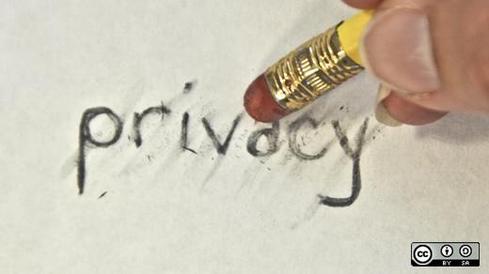The cost of surveillance has served as a natural privacy protection, but today's mobile technology changes the equation and begs for updated privacy laws.

The cost of surveillance has plummeted so dramatically that the assumptions upon which privacy laws have been based no longer hold.
In a Yale Law Journal article, Kevin Bankston, policy director at the Open Technology Institute, and Ashkan Soltani, an independent security consultant, argue that implicit privacy can no longer be taken for granted and that the decreasing cost of surveillance needs to be taken into consideration as lawmakers and the judiciary assess the adequacy and scope of privacy protections.
Bankston and Soltani frame their argument by citing Judge Richard Posner: "Technological progress poses a threat to privacy by enabling an extent of surveillance that in earlier times would have been prohibitively expensive."
This argument takes place in the wake of the US Supreme Court's ruling in United States v. Jones (2012). The court found that when police attached a GPS tracking device to the defendant's car and monitored the defendant's movements for 28 days, they violated the defendant's expectation of privacy.
Bankston and Soltani characterize the decision as a watershed moment in the interpretation of the Fourth Amendment, which protects against unreasonable searches and seizures. Before United States v. Jones, they note, legal precedent indicated that individuals could not expect any privacy in their public movements. The court however did not specifically define privacy expectations as they pertain to the ever-growing ease and affordability of surveillance.
[You can take steps to protect your privacy. Read 5 Google Opt-Out Settings To Check.]
Some clarification will be required because technology has the potential to make a mockery of the Fourth Amendment. Consider the Supreme Court's 2001 ruling in Kyllo v. United States. The court found that using a thermal imaging device without a warrant to assess a home's temperature – a possible sign of hot indoor lights used to grow marijuana – violated the Fourth Amendment.
Orin Kerr, professor of law at the George Washington University Law School, noted in a blog post in 2010 that the ruling adopts a test designed to account for the social norms of the time. In a follow-up post on Tuesday, he observed that in the past four years, the cost of a full-fledged thermal camera has fallen from around $2,000 to $350, pointing to the FLIR One thermal camera for iPhone. He asks whether the consumer availability of thermal imaging means the technology has entered general use, thereby enabling police to use thermal cameras without the need for a warrant.
What's an unreasonable search in an era when electronic searches are reasonably easy and affordable, and can be conducted from afar?
The cost of surveillance has been a natural privacy protection. There has been no need to legislate against being followed by the law enforcement without cause because it wouldn't be likely to happen: No rational law enforcement agency would allocate thousands of dollars per day to follow someone on a whim.
But thanks to mobile phones, the cost of surveillance is orders of magnitude less than what it would be using the sorts of conventional techniques assumed by privacy statutes. Bankston and Soltani estimate that it costs law enforcement agencies somewhere between $50 and $275 per hour to surveil an individual, depending upon whether the suspect is pursued on foot or using a vehicle. Tracking a suspect through his or her mobile phone costs between 4 cents and $4.17 per hour, depending upon the mobile carrier involved.
The difference between hundreds of dollars and hundreds of cents is enormous, particularly when considered at scale. Fifty years ago, it would have been impossibly expensive, not to mention technically impossible, to surveil everyone all the time. Today, the widespread use of electronic devices and dependence on government-regulated telecom infrastructure makes it possible for an agency like the NSA to aspire to "collect it all," and to come fairly close to that goal, at least in terms of electronic communications.
"If technical and financial barriers previously provided some protection from large-scale surveillance by the government, these implicit protections have been essentially eliminated by the low costs of new surveillance technology," Soltani writes in a post about his paper. "Once the cost approaches zero, we will be left with only outdated laws as the limiting function."
When the Internet began attracting mainstream usage in the mid-1990s, the phrase "information wants to be free" was frequently cherry-picked from a longer, more nuanced statement by Stewart Brand as a way to advocate for more flexible intellectual property rights. These days, surveillance wants to be free and privacy looks like a privilege.
Thomas Claburn is editor-at-large for InformationWeek. He has been writing about business and technology since 1996 for publications such as New Architect, PC Computing, InformationWeek, Salon, Wired, and Ziff Davis Smart Business. Before that, he worked in film and television. He's the author of a science fiction novel, Reflecting Fires, and his mobile game Blocfall Free is available for iOS, Android, and Kindle Fire.
Can the trendy tech strategy of DevOps really bring peace between developers and IT operations -- and deliver faster, more reliable app creation and delivery? Also in the DevOps Challenge issue of InformationWeek: Execs charting digital business strategies can't afford to take Internet connectivity for granted.
About the Author(s)
You May Also Like







